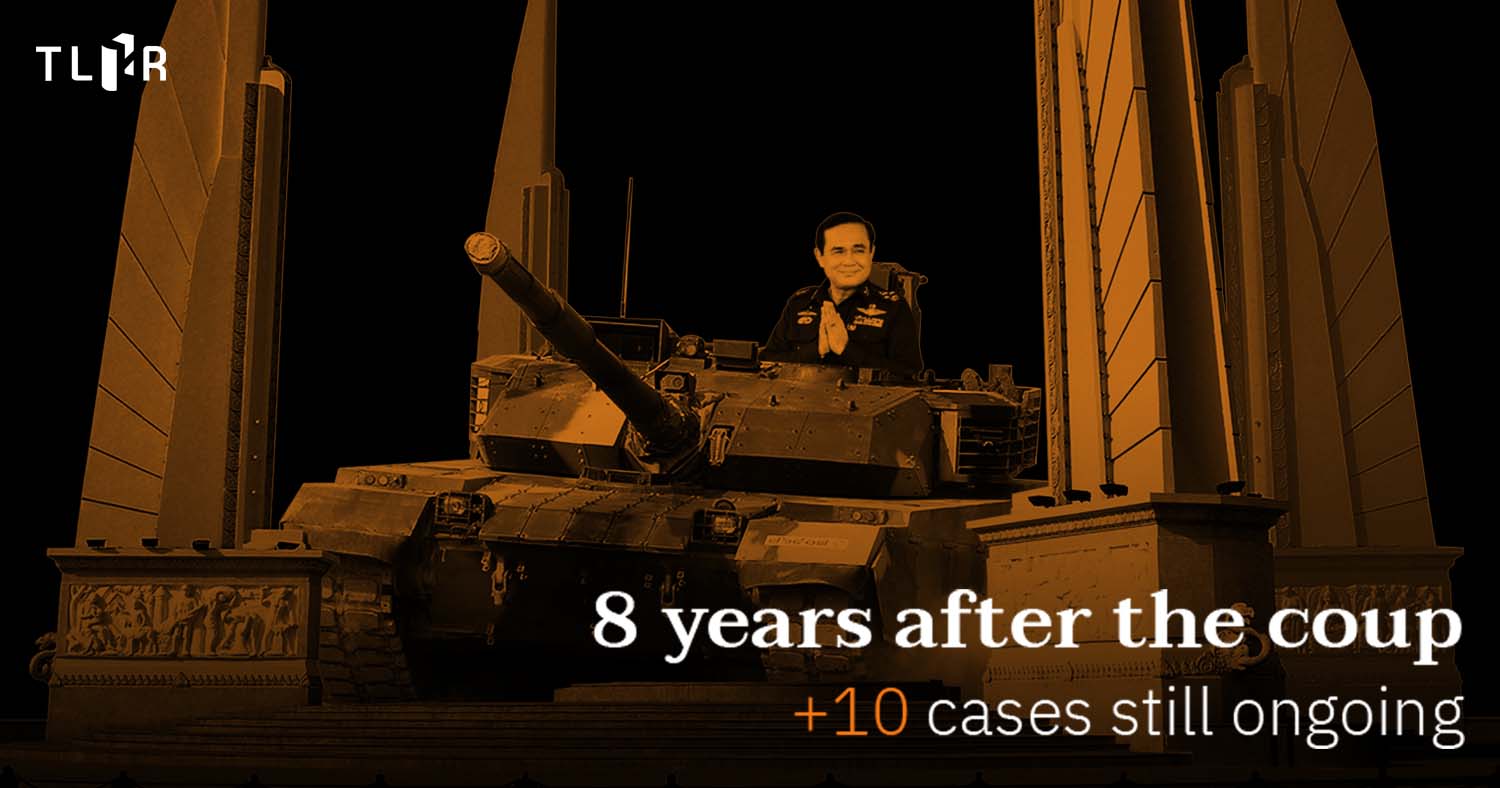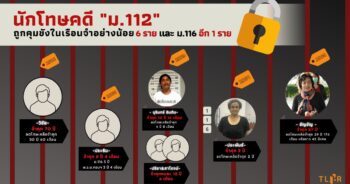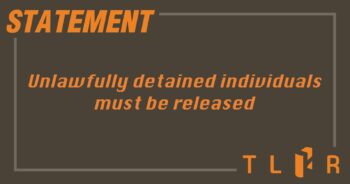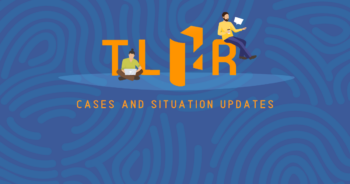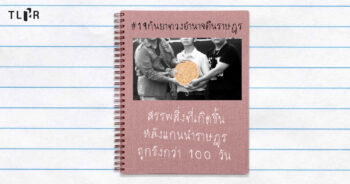While it has been 8 years since the coup d’état of 22 May 2014 and the responsible National Council for Peace and Order (NCPO) was formally dissolved, the power of the NCPO remain practically intact, and the repercussions resulted from the seizure of people power continues its course, both politically and legally. In particular, the pattern of state’s exercise of its power through the “law” and “judicial process” to restrict political expression and protests against the coup has further intensified in the midst of the current political situation.
Although the majority of the politically related cases during the NCPO era have ultimately been acquitted or dismissed by the court and public prosecutors, or disposed due to the revocation of NCPO orders, the accused activists and citizens have continued to suffer prolonged legal burden in the process designed by the coup-makers. Such a pattern also resulted in a significant weakening of the opposition movement.
In other words, these cases have been initiated irrespective of the “results”, whether to reclaim justice or correct the wrong, but to be exploited as a “strategy” or a “weapon” to control the society, give the people in power the upper hand, and undermine, threaten, suppress, or deter the movement of those against them through the imposition of burden accompanying the legal proceedings.
Read this in details in the report 7 ปี รัฐประหาร: ทบทวนผลลัพธ์คดียุค คสช. ภาพสะท้อน ‘นิติสงคราม’ ที่กฎหมายคืออาวุธทางการเมือง
Despite 8 years behind us, cases associated with political expression during the 5-year period under the NCPO remain active. Over 10 cases are still pending, some of which have been recently revisited, while many are awaiting witness hearings in court or decisions by a higher court. Some lives have been behind bars as a result of cases from that period.
The Thai Lawyers for Human Rights looks back at some of the ongoing cases during the NCPO, which reflect the problems of the political instrumentalization of law and judicial process.
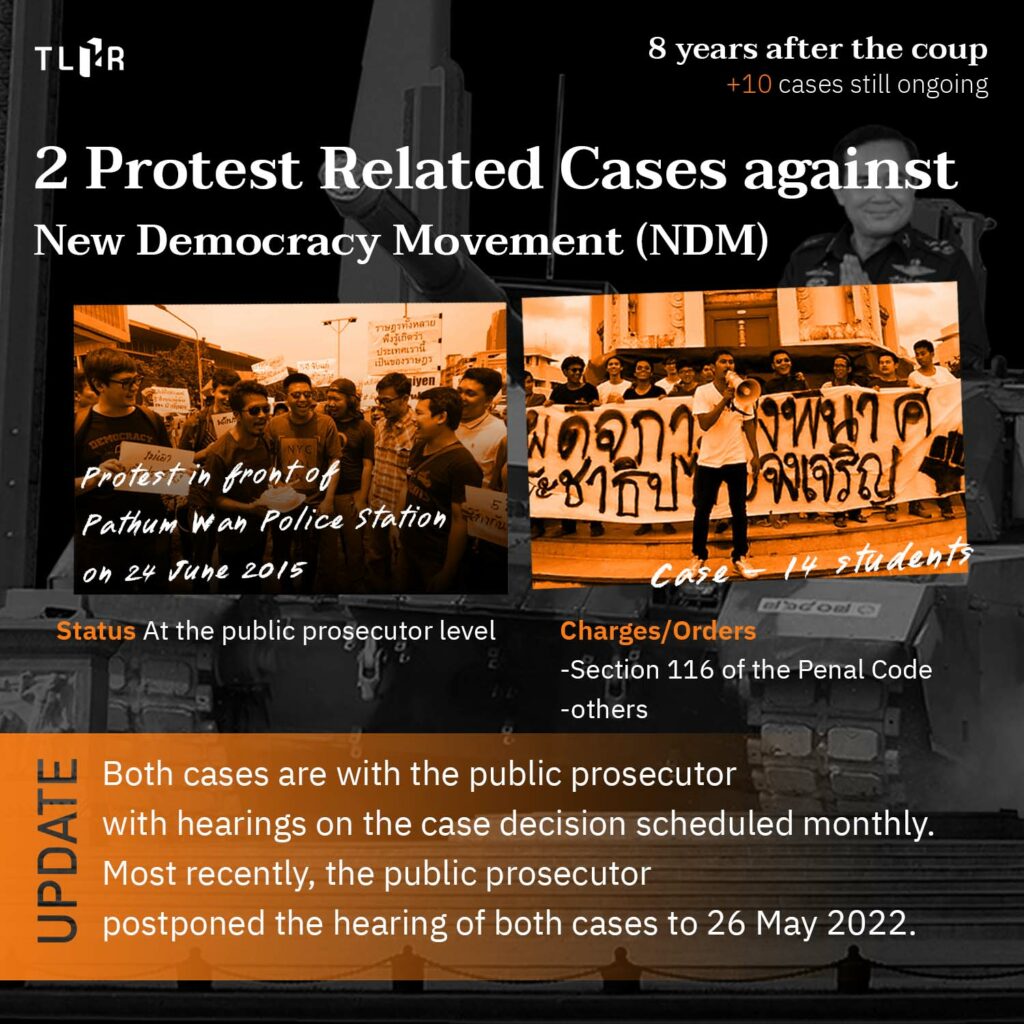
Two cases of the New Democracy Movement in 2015
While most of the cases related to protests following the 2014 coup were concluded as a result of the revocation of the NCPO order prohibiting any political assembly, some are still ongoing and have been “revisited” in the past year.
The main forces behind the anti-coup movement in 2015 were the New Democracy Movement (NDM) and the Dao Din Group from Khon Kaen University. Today, two cases connected to them are still active.
- The case involving the protest in front of the Pathum Wan Police Station on 24 June 2015. 16 people were accused, including Thanathorn Juangroongruangkit, for gathering in support of the activists and protesters who received summon warrants for participating in the demonstration commemorating the one-year anniversary of the coup on 22 May 2015. At the police station, the group of activists wished to file a case against the officers who dispersed the protest with violence. They refused to report themselves to the police as they were unwilling to accede to the NCPO power. Later, the NCPO assigned Col. Burin Thongprapai to file complaints against them.
- The case involving 14 students. On 25 June 2015, the students organized a march from Thammasat University, Tha Prachan Campus, to the Democracy Monument to protest against the coup and criticize the governing performance of the NCPO.
As individuals in both cases were charged mainly with Section 116 of the Penal Code (sedition), the cases are thus still active despite the absence of the NCPO. On 27 October 2021, the inquiry officers at the Pathum Wan Police Station and Samran Rat Police Station forwarded the files of the two cases to the public prosecutor. As such, both cases are now with the public prosecutor to rule whether to indict them to the court, requiring the accused to present to the public prosecutor monthly to hear for the orders. Most recently, the public prosecutor postponed the order hearing of both cases to 26 May 2022.
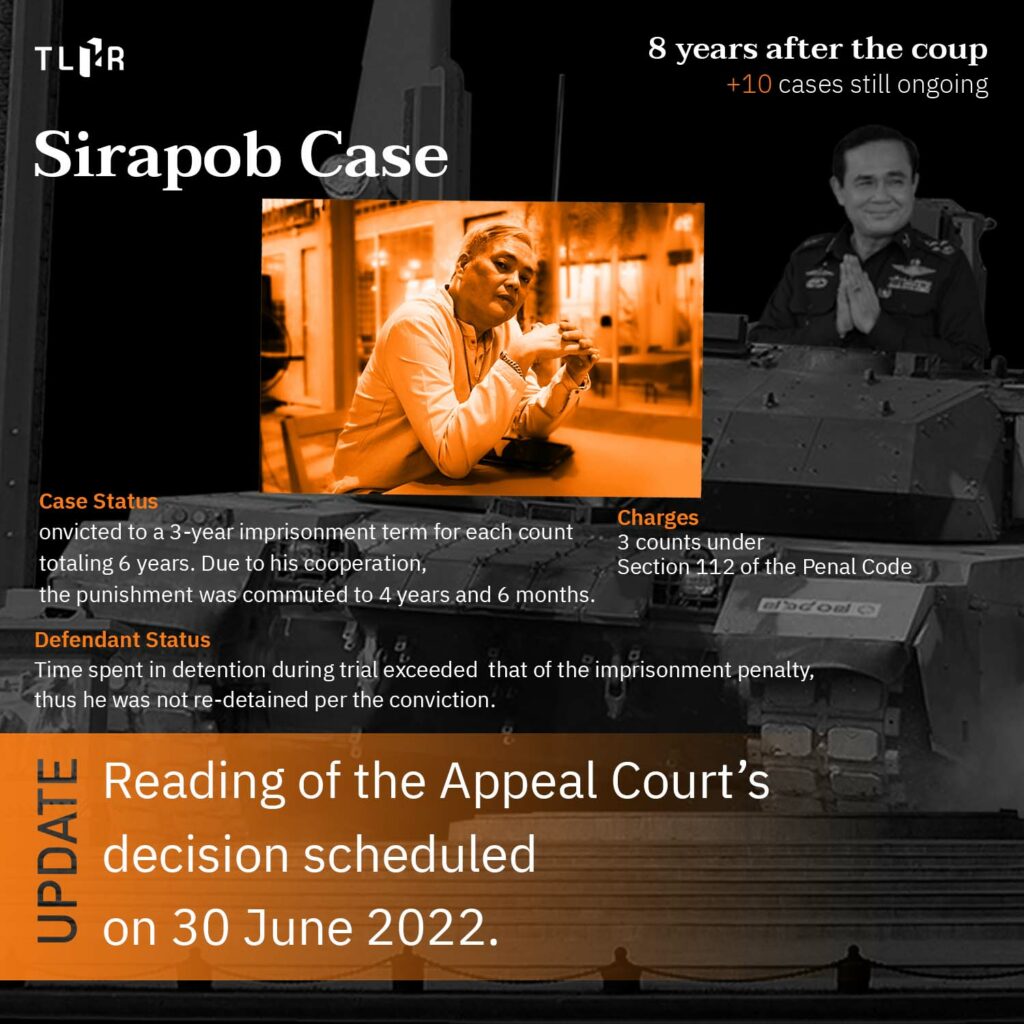
Sirapob’s Section 112 case
The case of Sirapob, also known as “Rungsila”, is considered one of the most significant Section 112 (lèse-majesté) cases during the NCPO era. He was jailed during trial for almost 5 years after his arrest following the coup for posting a poem and three texts. Throughout his detention and prolonged trial under the military court, Sirapob firmly denied any wrongdoings.
After having his bail granted in June 2019, Sirapob’s case was transferred to the Criminal Court, where witness hearings were carried out. The Court passed a verdict on 18 January 2021 convicting him in two counts to a 3-year imprisonment term for each count, totaling 6 years. As the defendant cooperated with the trial, the punishment was commuted by one fourth to 4 years and 6 months.
However, since the time in which Siripob spent in detention during trial had exceeded that of the imprisonment penalty, he was released immediately. Nevertheless, Sirapob wished to appeal the case insisting that he had not committed any offences. In this regard, if his case was still under the jurisdiction of the military court, an appeal would neither have been permitted nor possible.
Recently, the Criminal Court has set a date for the reading of the Appeal Court’s decision on his case on 30 June 2022.
>> สนทนากับ “รุ่งศิลา” กวีที่แลกอิสรภาพเกือบ 5 ปี สู้คดี 112 ในวันที่สังคมยังหวาดกลัว
>> การเติบโตภาคบังคับของลูกสาวพ่อ : 4 ปี กับชีวิตและความเป็นไปของครอบครัว “สิรภพ” ผู้ต้องขังคดีม.112
>> 5 ปีการคุมขัง: คณะทำงานฯ UN เรียกร้องปล่อยตัว “สิรภพ” คดี 112 ชี้เป็นการควบคุมตัวโดยพลการ
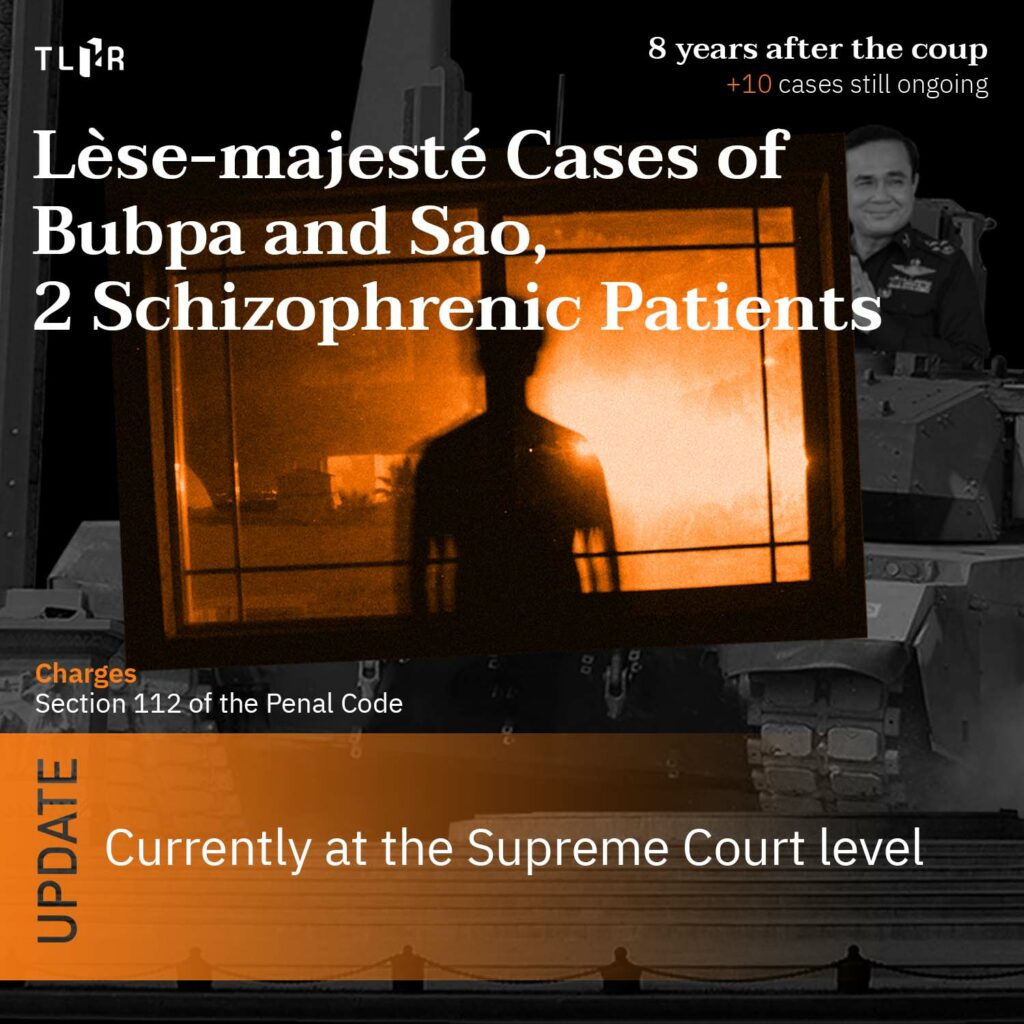
The Section 112 cases of “Bubpa” and “Sao”, two schizophrenic patients.
“Bubpa” (alias), a 51-year-old psychiatric patient, has been accused of Section 112 (lèse-majesté) and the Computer Crime Act for posting a total of 13 texts on Facebook referring to King Rama IX and royal family members. She was arrested by military and police officers in 2016 and her case was filed to the military court in Chonburi province. She had been detained during trial for almost 2 years before being released on bail.
The doctor was of the opinion that she was capable enough of presenting a defense in court despite symptoms of Schizophrenia. Bubpa believed that she was a scion of a royal house, a spy, responsible for guarding the palace laws. It was assumed that the defendant was experiencing an episode of illness leading up to the accusation. Moreover, the courts, both the military court and later the Pattaya Provincial Court, ordered a secret trial for Bubpa’s case. Audience was not allowed even at the readings of verdicts.
The Court of First Instance ruled that Bubpa was guilty of the offence under Section 14 (3) of the Computer Crime Act, but the lèse-majesté charge was dismissed. Bubpa was sentenced to an imprisonment term of 6 months for each of the 13 counts, totaling 78 months (approximately 6.5 years). However, the penalty was suspended for three years with the condition that Bubpa must receive a medical treatment. On 1 March 2022, the Court of Appeal Region 2 modified the decision of the first court to convict Bubpa of Section 14 (1) of the Computer Crime Act instead, reasoning that the decision was a result of a misinterpretation of the provision not in accordance with the fact and the law. The court did not modify the extent of the penalty.
Bubpa has decided to appeal further to the Supreme Court, so her case is currently in the process thereof.
Meanwhile, Sao, a 57-year-old Tai Lue schizophrenic man, was also accused of lèse-majesté during the NCPO era for lodging a complaint at the Criminal Division for Holders of Political Positions of the Supreme Court in 2015. He wanted to sue former Prime Minister Thaksin Shinawatra for asset forfeiture in order to reclaim assets from him, a task which he believed was assigned to him by the late King Rama IX. He believed that he could communicate with the King Rama IX via television.
In this case, Sao was detained during the inquiry stage for 84 days before being released on bail. His case extended over a long period of time, from the interim military court to the civil criminal court and finally the appeal court. Recently, on 24 February 2022, the Court of Appeal passed a verdict of acquittal, reasoning that even though the defendant’s act was guilty of Section 112, he committed the offence at the time in which he was in the state of incapability due to mental illness. Thus, the defendant did not need to carry out the penalty according to Section 65 Paragraph 1 of the Penal Code.
However, the public prosecutor has asked for an extension of the appeal period for the Supreme Court for this case. The case is therefore not at its final stage, and has been ongoing for over seven years now.
>> อยุติธรรมยาวนาน และการทวงความยุติธรรมของ ‘เสาร์’ – ผู้ป่วยจิตเวช คดีหมิ่นฯ กษัตริย์
>> การทวงถามความยุติธรรมเกือบ 7 ปี ของ “เสาร์” ผู้ป่วยจิตเวช ที่ไม่ควรถูกดำเนินคดี ม.112 แต่แรก
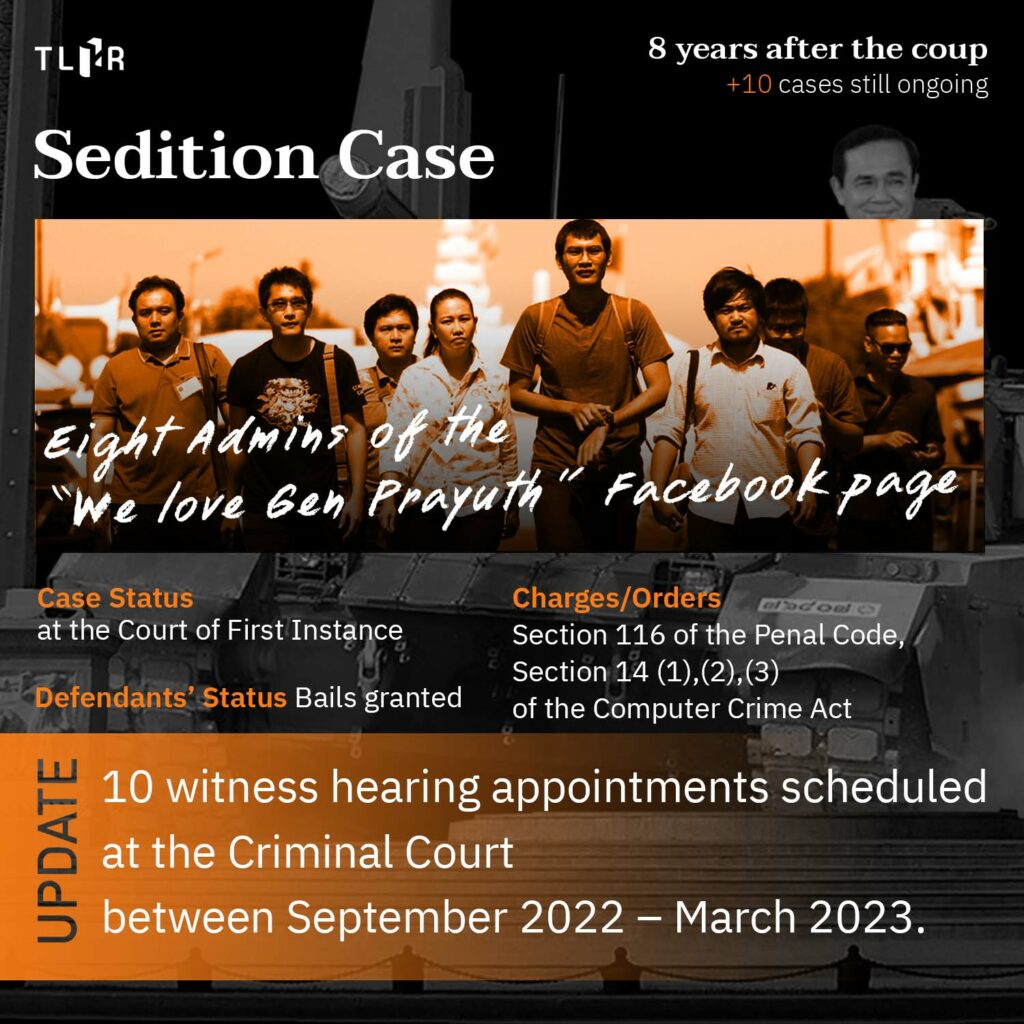
Section 116 case of the eight admins of the “We love Gen Prayuth” Facebook page.
In April 2016, military officers detained eight activists and citizens in Bangkok and Khon Kaen in a military barrack for two days. They were then sent to the Crime Suppression Division, and were subsequently charged under Section 116 (sedition) of the Penal Code and the Computer Crime Act. The reason for the accusation was that they had jointly created and managed a Facebook page named “We love Gen Prayuth”, which contained content criticizing Prime Minister Prayuth Chan-ocha and the performance of his government. Maj. Gen. Wijan Jodtaeng from the legal department of the NCPO was the accuser in this case.
All of the accused had been detained for 12 days before the military court granted them bail, except for Harit and Nattika, whose releases were withheld and they were later charged with Section 112 (lèse-majesté) in another case. In the case of Harit, the Criminal Court has already passed a verdict of acquittal after six years of defense. On the other hand, Nattika decided to seek political asylum abroad, illustrating one of the enduring effects of the coup.
The case of the eight “We love Gen Prayuth” admins was later transferred to a civilian court following a prolonged process of witness hearing under the military court. Today, the case is still ongoing with 10 additional witness hearing appointments scheduled at the Criminal Court from September 2022 – March 2023.
[The United Lawyers For Rights & Liberty has been providing legal aids for this case.]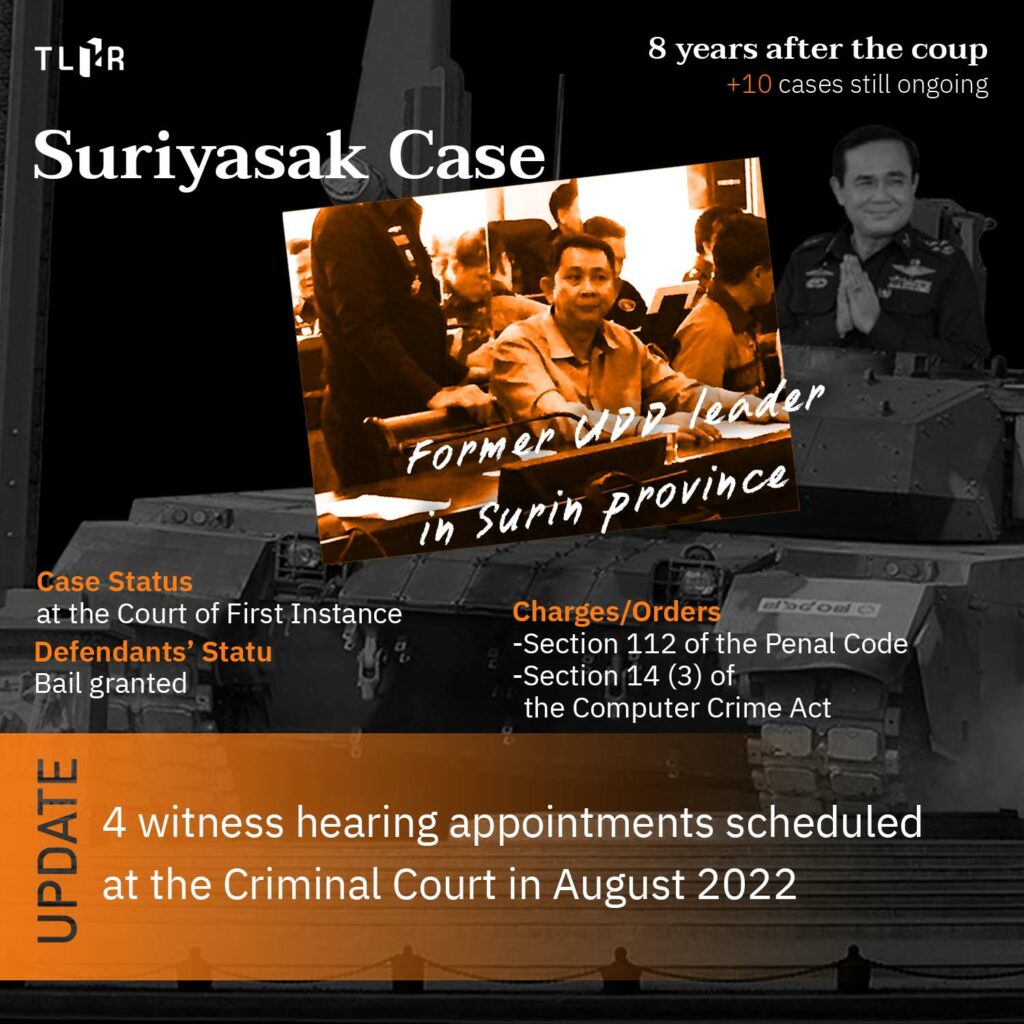
Suriyasak’s Section 112 Case
Suriyasak, 54, was a former United Front for Democracy Against Dictatorship (UDD) leader in Surin province. In March 2017, he, along with eight other people were detained by military and police officers for allegedly being affiliated with the network of Wuttiping “Ko Tee” Kotchathammakhun, one of the abducted political exiles. Later, Suriyasak was charged by the police from the Technology Crime Suppress Division (TCSD) with lèse-majesté (Section 112) and the Computer Crime Act, for his communication in a chat group titled “Kon Nok Kala” on “Line” mobile application on 13 July 2016. Maj. Gen. Wijan Jodtaeng from the legal department of the NCPO was the accuser in this case.
Suriyasak had been detained during trial under the military court since his arrest until he received bail on 12 June 2019, a total of 2 years and over 3 months. The case was later transferred to a civilian court. Currently, his case is under the Criminal Court. The four witness hearing appointments have been postponed due to Covid-19 pandemic to August 2022.
[The United Lawyers For Rights & Liberty has been providing legal aids for this case.]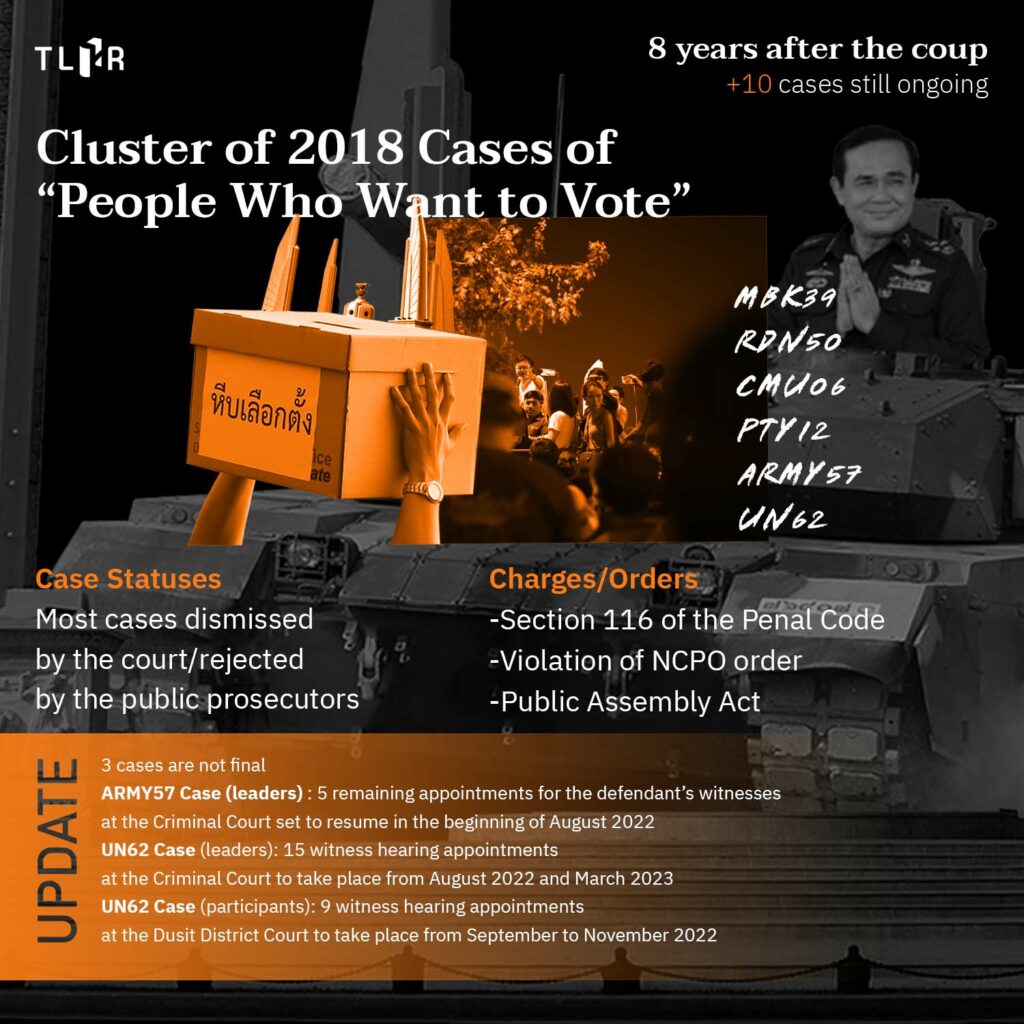
The cluster of cases of “People Who Want to Vote” in 2018.
The cluster of cases filed during the “People Who Want to Vote” protests in the beginning of 2018 are another portion of cases that remains active. The said protests took place between January and May 2018 calling for the NCPO to set a clear, fixed date for a general election and to end the succession of power. As a result, protest leaders and participants were accused in a total of 10 cases, most of which have been dismissed by the court or rejected by the public prosecutors.
The three remaining ongoing cases include:
- one case involving the protest in front of the Army Headquarter, aka ARMY57, where the ten protest leaders were charged with Section 116 (sedition). The witness hearings have been conducted at the Criminal Court sporadically, with all plaintiff’s witnesses successfully testified and five remaining appointments for the defendant’s witnesses set to resume in the beginning of August 2022, and;
- two cases stemmed from the marching rally from Thammasat University to the United Nation Headquarter, aka. #UN62. Such an incident resulted in 2 separate cases: the leaders (18 of accused) and the protesters (40 of accused).
In the case involving 18 leaders who were mainly charged with Section 116 (sedition) – the Criminal Court set the dates for 15 witness hearing appointments between August 2022 and March 2023.
In the case involving 40 protesters, individuals were mainly charges with Section 215 and 216 of the Penal Code and the Public Assembly Act. The witness hearings are currently taking place at the Dusit District Court, with nine appointments to take place from September to November 2022.
During the NCPO era, Section 116 or the “sedition” offense under the Penal Code has particularly been misused, overexaggerating the accusation. Eventually, the cases of these leaders will likely be dismissed by the court.
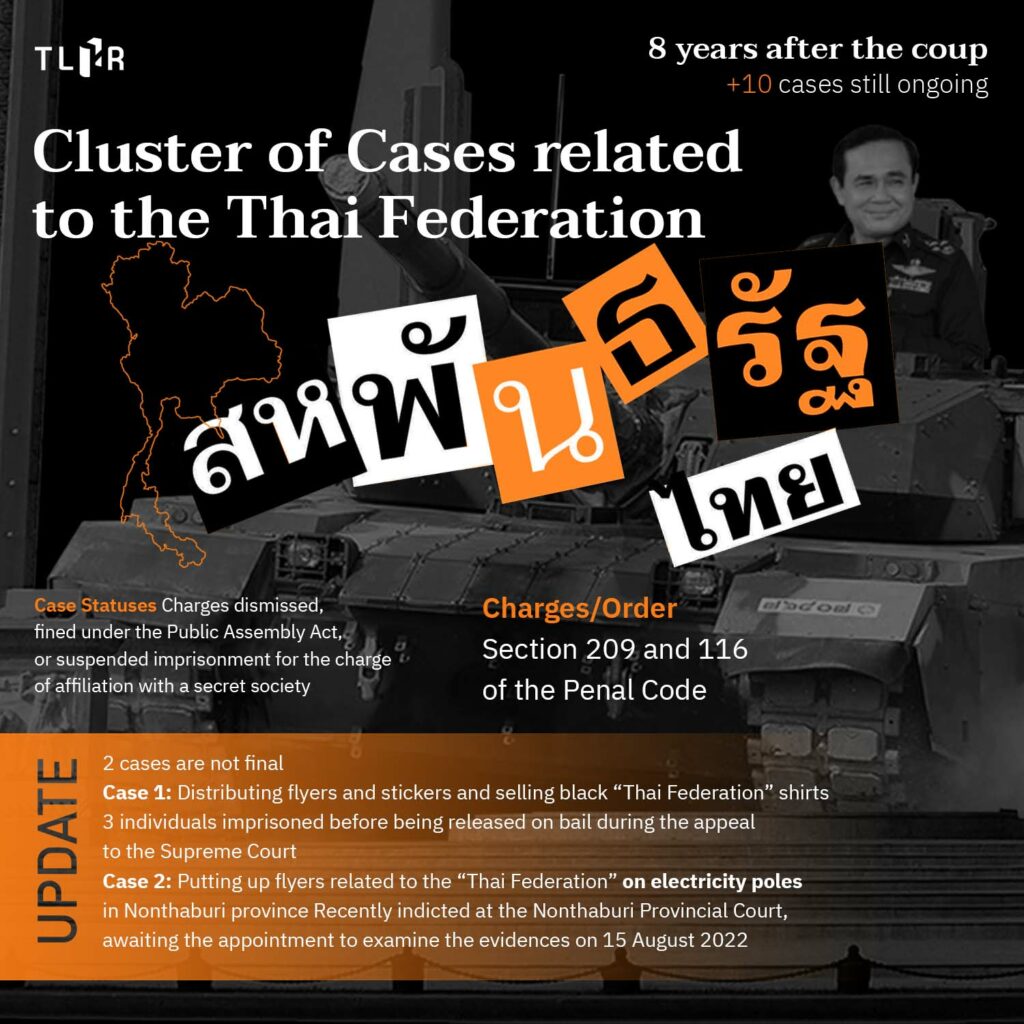
The cluster of cases involving the Thai Federation
The cluster of cases involving the expression associated with the “Thai Federation” were a notable incident towards the end of the NCPO era. Based on TLHR observation, at least 21 people have been accused in ten cases, all of whom were charged mainly with Section 116 (sedition) and secret society offence due to their expressions in 2018.
Following the litigation, the court has either dismissed all charges or fined the accused according to the Public Assembly Act or sentenced the accused to suspended imprisonment for the charge of affiliation with a secret society. Among those prosecuted, “Prapan”, a 60-year-old massage therapist, who was accused of distributing flyers with contents regarding the Thai Federation and wearing a black shirt symbolically at The Mall Bangkapi shopping mall on 5 December 2018, had been behind bars for more than two years and was recently released on 31 May 2021.
Another ongoing case is that of Kritsana, Toedsak, and Wanna, who were accused of distributing flyers and stickers and selling black “Thai Federation” shirts. The trio were each sentenced to imprisonment of a 3-year imprisonment term by the Appeal Court. The first two had their sentence reduced by one third to a 2-year imprisonment term without suspension. Three of them spent 19 days in prison before being released on bail during the appeal to the Supreme Court under the conditions that they wore EM devices. The decision by the Supreme Court is still pending.
In addition, a 21-year-old student was arrested and charged with Section 116 (sedition) and the secret society offense in February 2021 for putting up flyers related to the “Thai Federation” on electricity poles in Nonthaburi province in 2019. As of present, the case has been indicted at the Nonthaburi Provincial Court, awaiting the appointment to examine the evidences and witness on 15 August 2022. This case is one of the Thai Federation cases that has been additionally filed at a later time.
>> เปิดฐานข้อมูล “คดีสหพันธรัฐไท”
>> อิสรภาพที่ขมขื่นของ ‘นางประพันธ์’ อดีตผู้ต้องขังคดี ‘สหพันธรัฐไท’ นานกว่า 2 ปี
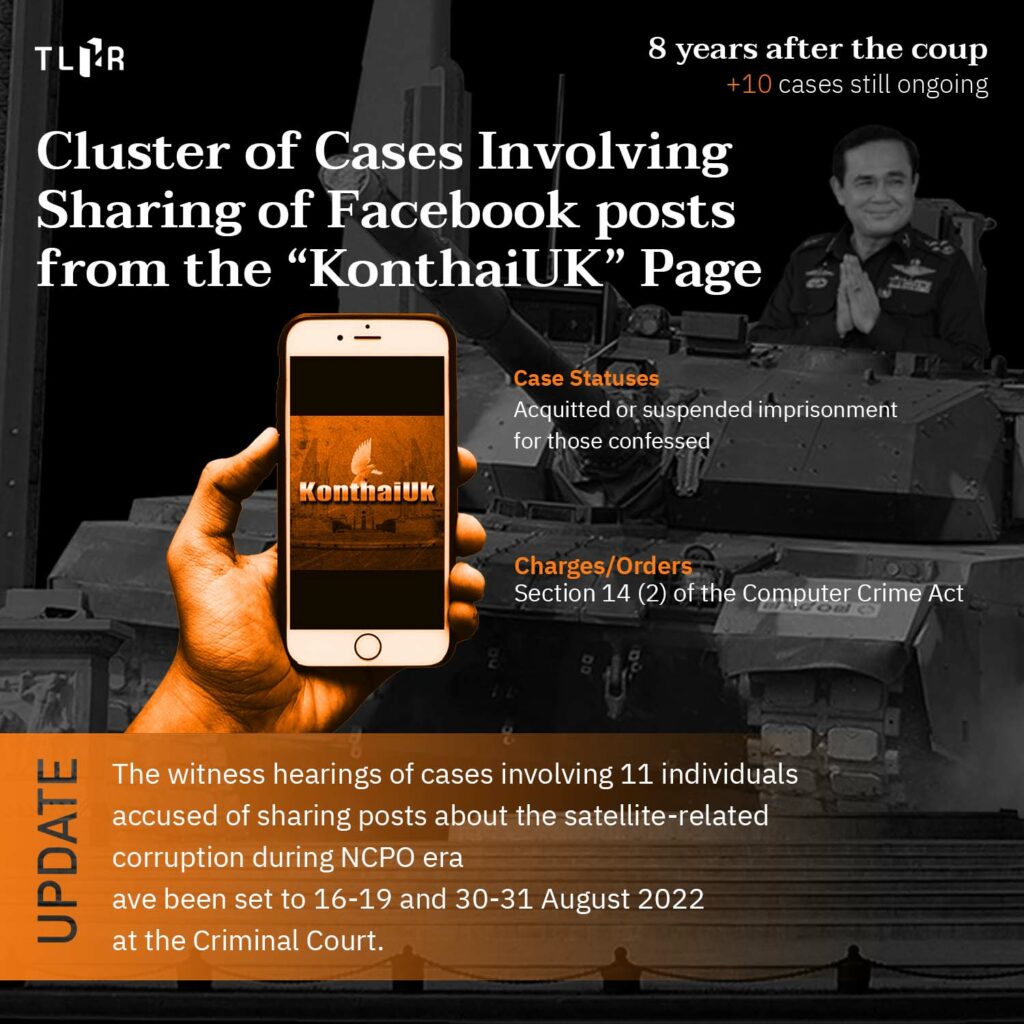
The cluster of cases involving sharing posts from the “KonthaiUK” Facebook page.
The cluster of cases of people sharing posts from the KonthaiUK page involve a large number of people being accused – at least 31 people. Arrests were made of citizens from various provinces from all over the country since June 2018 under the leadership of a tourist police officer, Pol. Maj. Gen. Surachet Hakpan (his title at the time). He filed cases containing the offense under Section 14 (2) of the Computer Crime Act at the TCSD following the sharing of posts from the KonthaiUK page, which contained content criticizing Deputy Prime Minister Gen. Prawit Wongsuwan for the purchase of aircrafts and Prime Minister Gen. Prayuth Chan-ocha for fleeing the country when facing the treason charge as well as fearing to be held accountable for corruption during the NCPO era. Most of the sharing merely involved clicking the share button from the page posts.
Among these cases, ten people have decided to defend against the allegation and been acquitted by the Criminal Court. Other ten people have pleaded guilty to sharing the post criticizing Gen. Prayuth and Prawit’s corruption incident related to the purchase of satellites. For them, the Criminal Court passed a sentence of imprisonment of one-year imprisonment term and ordered a fine of 20,000 Baht each, with a suspension of the imprisonment penalty.
Meanwhile, other 11 individuals accused of sharing the satellite-related corruption post have insisted to go on trial. The witness hearings in these cases have been postponed due to Covid-19 pandemic to 16-19 and 30-31 August 2022 at the Criminal Court.
The trial incurs financial burdens, both for the litigation itself as well as traveling costs, for these defendants – many of whom are from a poor background and live in the outer provinces.
>> ไม่มีงาน ไม่มีเงิน ไม่ได้ค่าเยียวยา 5 พัน: ชีวิตเกษตรกร-แรงงาน ผู้ต้องคดีคนไทยยูเค
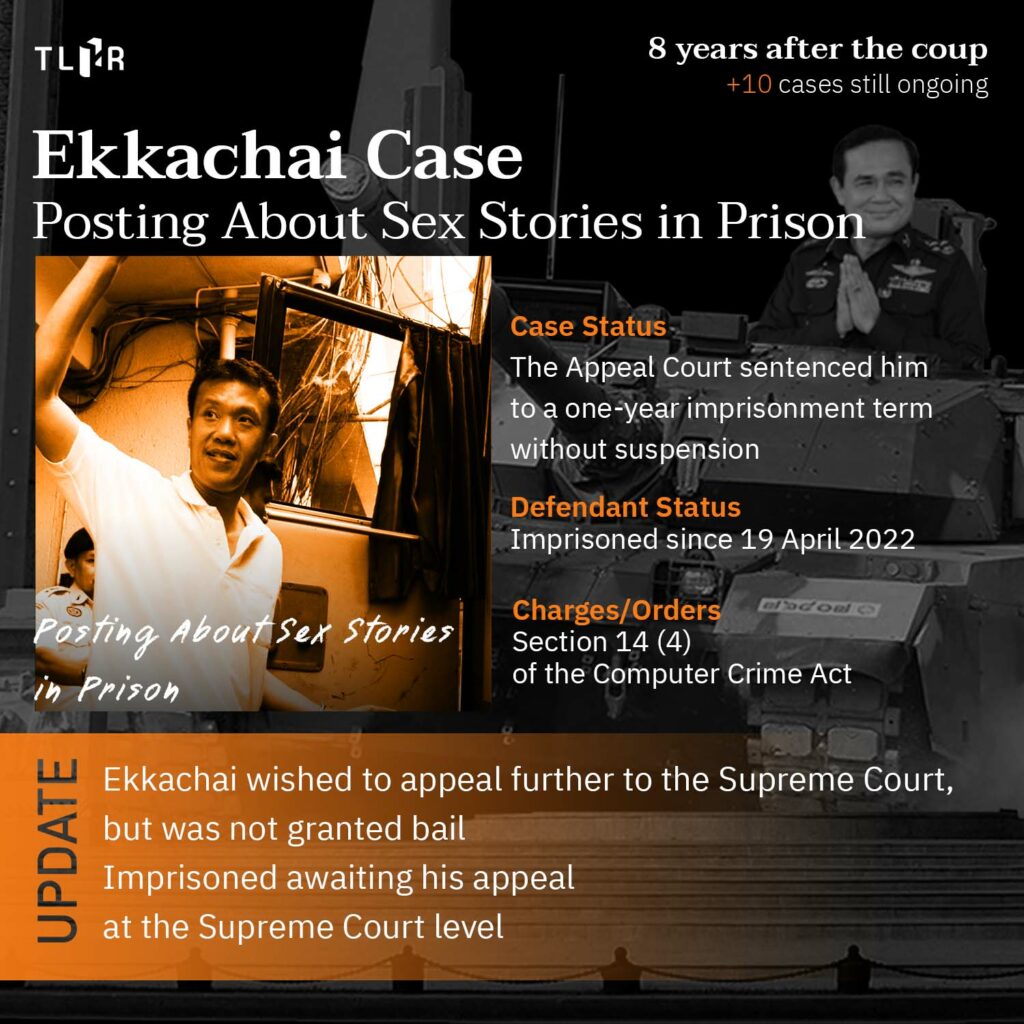
Ekkachai’s case involves posting about sex stories in prison. He is currently detained while waiting to file an appeal to the Supreme Court.
The case of posting about sex stories in prison of Ekkachai Hongkangwan with charge under Section 14 (4) of the Computer Crime Act is another example of cases against activists during the NCPO era that has continued until today. This case occurred while Ekkachai was active with scrutinizing luxury watches allegedly belonging to Gen. Prawit Wongsuwan in 2018. As a result, he was continuously accused by military and police officers for his expression. The TCSD police also filed a case against him retroactively for the post telling the story of “my first prison life” in 2017.
Both the Court of First Instance and the Appeal Court ruled Ekkachai guilty and sentenced him to a one-year imprisonment term without suspension. Ekkachai wished to appeal further to the Supreme Court because his intention behind the series of articles was to simply reflect problems related to life of prisoners and encourage improvements. However, after the passing of judgment, the Appeal Court did not allow bail for Ekkachai, and he has been in detention since 19 April 2022.
As long as Ekkachai’s bail is not granted, TLHR will continue to monitor his defense at the Supreme Court level.
>> สรุป 30 คดีทางการเมืองของ “เอกชัย หงส์กังวาน” ผู้ถูกจองจำในเรือนจำครั้งที่ 4
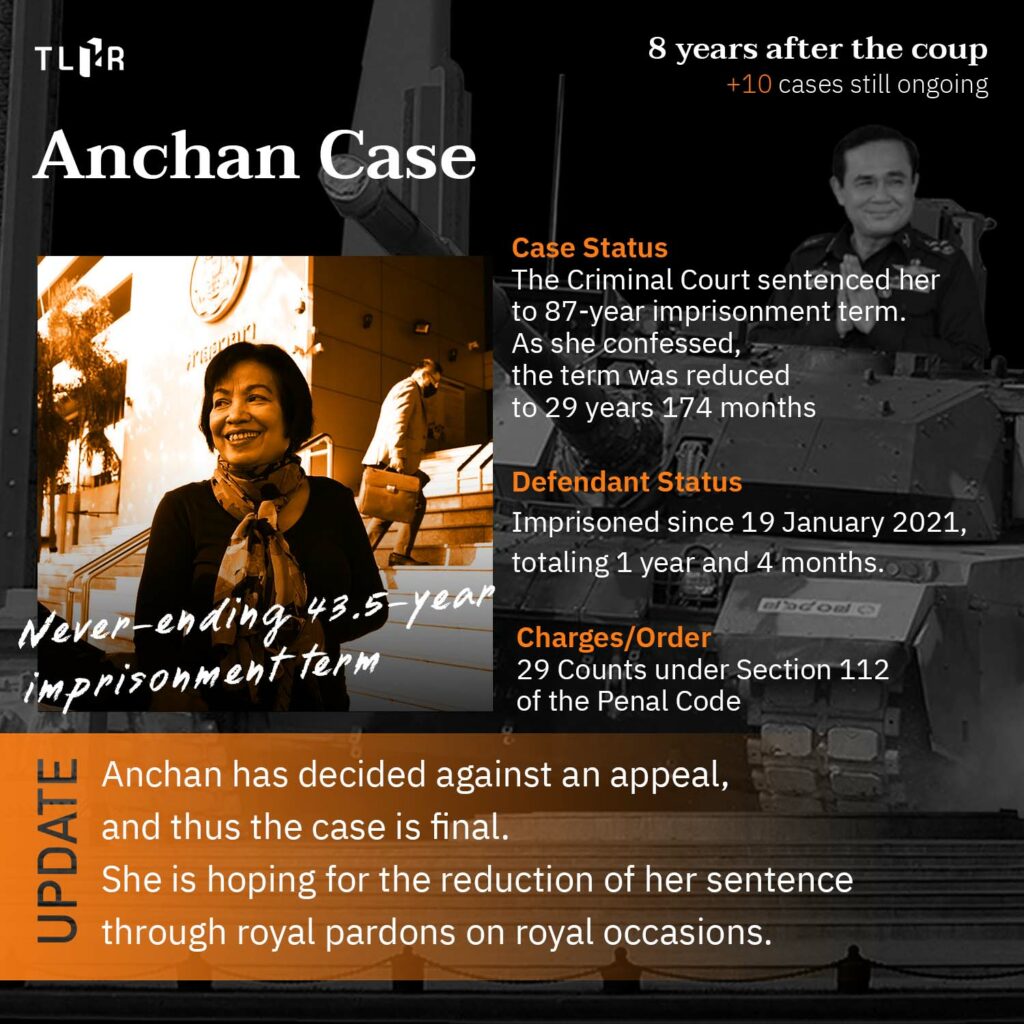
Anchan and her never-ending 43.5-year imprisonment term.
Although the case of Anchan, a 66-year-old former civil servant accused of Section 112 (lèse-majesté) of the Penal Code for sharing 29 statements accompanying the audio clip of “Banpot”, has been concluded, her incarceration continues. Anchan was sentenced by the Criminal Court to imprisonment of a total of 87 years, which were commuted by half to 29 years and 174 months (around 43.5 years) given her confession. The penalty has been recorded as the highest in the history of this charge.
By the time the judgment was passed on 19 January 2021, Anchan had already been imprisoned for 1 year and 4 months. If counting 3 years and 9 months Anchan spent in detention during the trial at the military court, Anchan would have been imprisoned for 5 years in total. In spite of that, she still had more than 38 years before completing her term. Anchan has decided against an appeal.
In the period of imprisonment following the conclusion of her case, Anchan has received royal pardons twice reducing some of her imprisonment term. The status of her remaining punishment remains to be monitored by TLHR.
Anchan’s case reflects the severity of disproportionate punishment under Section 112. Anchan herself was not the producer of the said audio clip and merely shared it. Meanwhile, Banpot, who produced several clips criticizing the monarchy during the NCPO era, was only prosecuted for just one single count leading to a short imprisonment, which was already behind him now.
>> จากศาลทหารสู่ศาลยุติธรรม: การต่อสู้ของ “อัญชัญ” จำเลยคดี 112 กับโทษจำคุกครึ่งชีวิต
>> คณะทำงานสหประชาชาติเรียกร้องให้ปล่อยตัวผู้หญิงที่ถูกจําคุกในข้อหาหมิ่นประมาทกษัตริย์โดยทันที
Remark: There are relevant ongoing cases related to individuals’ possession of illegal weapon during the NCPO era, the details of which have not been mentioned here.
